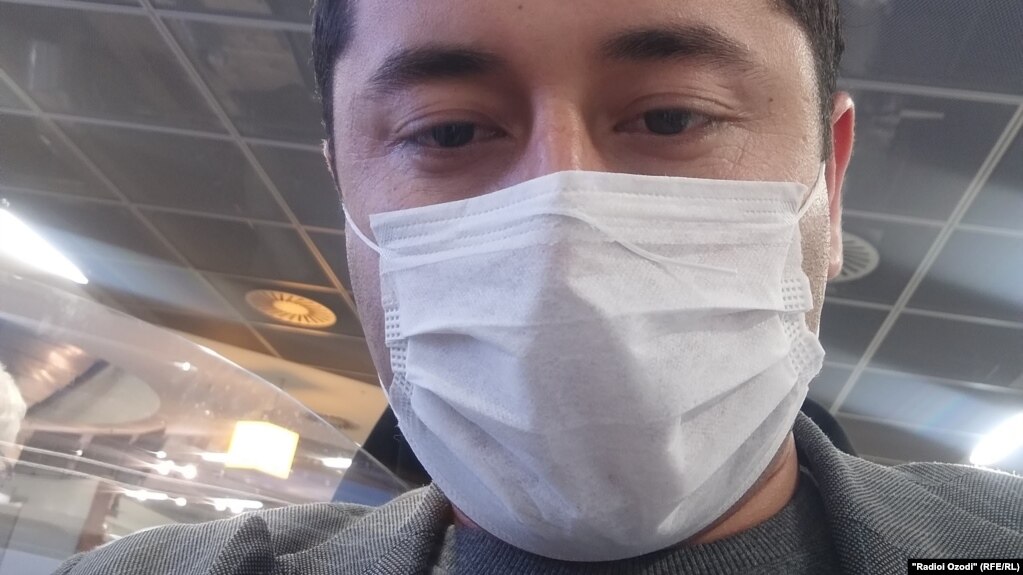RFE/RL Criticizes Tajikistan’s Attempts To Interfere With Coronavirus Reporting
As journalists with Radio Free Europe/Radio Liberty’s (RFE/RL) Tajik Service race to cover the coronavirus pandemic, filling an information void left by an inert official press, the government is obstructing their efforts and is even poised to withhold their accreditations, according to a complaint by RFE/RL President Jamie Fly.

WASHINGTON, D.C. — As journalists with Radio Free Europe/Radio Liberty’s (RFE/RL) Tajik Service race to cover the coronavirus pandemic, filling an information void left by an inert official press, the government is obstructing their efforts and is even poised to withhold their accreditations, according to a complaint by RFE/RL President Jamie Fly.
In a March 30 letter to Tajik Foreign Minister Sirojiddin Muhriddin, Fly expressed frustration at the government’s continuing attempts to interfere with the operations of the Service, known locally as Radio Ozodi, at a “perilous time,” and when, “as growing audience numbers show, it is needed more than ever.”
Radio Ozodi plays an outsized role in Tajikistan, a poor Central Asian state bordering China and Afghanistan that has been slow to respond to the global pandemic, even permitting public parades and open markets during the recent Nowruz holiday. Ozodi boasts a popular Instagram account and a YouTube channel with a subscriber base of nearly one million, the country’s largest, that has been an essential source of news and public health guidance for the country’s large migrant population and youth. Yet, authorities have refused to meet with the Service’s reporters to answer their questions, and excluded them from public health briefings. “We suspect, bizarrely, that it was precisely our active reporting about the virus that led the government last week to ban Ozodi’s website and censor this coverage,” Fly said.
These recent steps to stifle the Service’s reporting come as Tajik authorities have systematically denied growing numbers of its journalists the Foreign Ministry accreditation they need to legally work. Fly deplored the withholding of credentials “as an effort to control who works for Ozodi and what they report,” and as a betrayal of an explicit pledge made by Tajik President Emomali Rahmon to RFE/RL last year. He decried other efforts to harass and intimidate Ozodi staff members, including a smear campaign on government websites and Facebook in which officials posted comments applauding the denial of accreditation, accusing Ozodi journalists of “incitement” and “disloyalty to the state,” and labeling the Service’s Dushanbe bureau “a nest for espionage and exploration.”
Fly also rebuffed the Foreign Minister’s longstanding assertion that the Service’s coverage of the Islamic Renaissance Party of Tajikistan (IRPT) is tantamount to support for terrorism, and grounds for suppressing its reporting. “As we have explained previously,” he said, “Tajikistan’s designation of the IRPT as a terrorist group is contrary to international consensus. As long as the group renounces violence and pledges adherence to the rule of law, it is an element of Tajik political life that Ozodi will continue to report about.”
The full text of the letter is here.
RFE/RL’s Tajik Service, operating out of a bureau in Dushanbe, is one of the country’s few sources of accurate and independent news, attracting outsized audiences with compelling reporting on issues not otherwise covered by state-run media.
For more information, contact press@rferl.org.
###
About RFE/RL
Radio Free Europe/Radio Liberty (RFE/RL) is a private, independent international news organization whose programs — radio, Internet, television, and mobile — reach influential audiences in 23 countries, including Russia, Ukraine, Iran, Afghanistan, Pakistan, the republics of Central Asia and the Caucasus. It is funded by the U.S. Congress through USAGM.